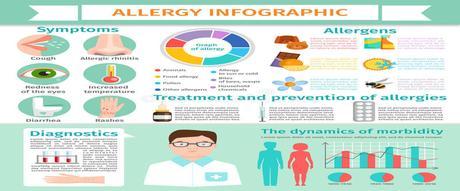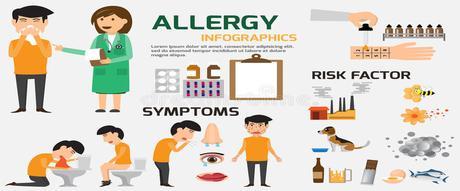
Allergy symptoms are indicators that one might be suffering from allergy . If you suspect that you may be suffering from food allergy , you may be looking for some allergy symptoms as a confirmation. After all, some individuals believe that they do not need to seek medical attention if they are able to diagnosis food allergic symptoms themselves. This is true in some cases, as long as your allergy symptoms are not severe.
Mild to Moderate Allergy Symptoms
Most food allergy sufferers only experience mild to moderate allergy symptoms when having an allergic reaction. The mild allergic symptoms include chest congestion, itchy eyes, watery eyes, and a rash. As for moderate allergic reactions, symptoms tend to include itchy eyes, watery eyes, a rash, chest congestion, an itchy feeling over most of the body, as well as difficultly breathing.
Although most mild to moderate allergy symptoms can be treated at home, without a visit to a doctor's office or the hospital, you should seek medical attention if you ever find it difficult to breathe, as you don't want to your symptoms to escalate.
Severe Allergy Symptoms
Even though severe allergic reactions are not as common as mild to moderate symptoms, they are the most dangerous. I advise that if you experience severe symptoms of food allergy , it is better you seek medical attention immediately. Severe food allergy symptoms include swelling, difficulty breaking, vomiting, diarrhea, painful cramps, dizziness, and a loss of consciousness. If medical attention is not sought immediately following a severe allergic reaction, the results may be fatal.

As I previously said, it is more than possible for you to examine your symptoms to see if they are the result of food allergies. However, you may still schedule a visit with your doctor.
This is because you may receive a stronger prescription medication, which may be able to provide you with the best relief. Even if you aren't given a prescription, your doctor will still likely give you tips and recommendations. For example, he or she may recommend an over-the-counter allergy relief medication or they may even suggest natural ways that you can seek relief. If you have health insurance, you are encouraged to visit your doctor, as no harm can come from doing so.
Share this post: on Twitter on Facebook on Google+
